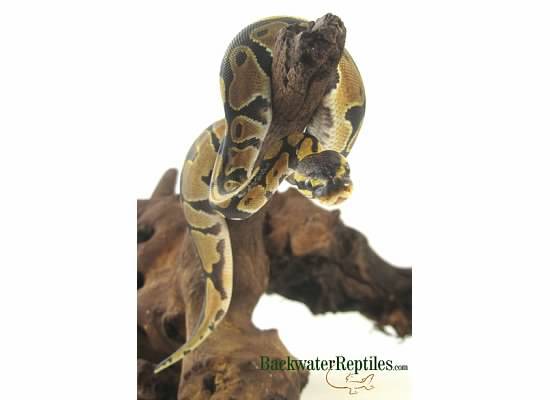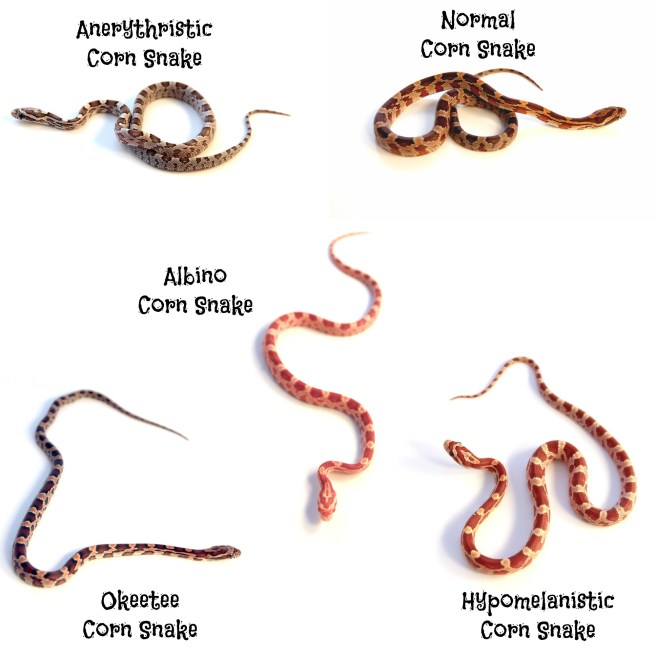You might have heard that snakes have unpredictable temperaments. Perhaps this notion is preventing you from getting a pet snake of your own? Well, while it is true that certain species are prone to aggressiveness, there are many species that are generally docile and take to human handling quite well.
We’ve had tons of experience handling thousands of different snakes, from small species to true giants. So, in this blog article, we’re going to list the top four most docile pet snakes based upon decades of dealing with reptiles.
All of the below species are of course non-venomous.
Ball Python (Python regius)
Most snake enthusiasts can’t get enough of ball pythons. In fact, we’d even go so far as to say that ball pythons are the friendliest, most easy-going snake species we’ve had the pleasure of working with daily.

Most ball pythons are pleased to be taken out of their enclosure and held. They’ll often curl up into little “snake balls” and just sit comfortably in your hands, thus their name. They’re real sweethearts as far as snakes are concerned.
Another great trait of ball pythons is that because they are so readily available as captive bred animals, they rarely suffer from health problems and are parasite free. Let’s not forget to mention that captive breeding efforts also produce a multitude of beautiful color morphs and unique patterns.
Ball pythons are easy to keep too. There are endless quality care sheets available on the Internet, but suffice it to say, they require a water dish, hide spot, some bedding (we use aspen mulch), and a heat source.
If you’re wondering exactly how to heat them, we use a simple low wattage heat pad underneath about a third of the enclosure. This allows your pet snake to thermoregulate on its own. In other words, it allows your snake to get warm, or cool down, as it sees fit.
Heat is very important for pet snakes because without sufficient heat, they can’t digest their food properly and will either refuse to eat, or will regurgitate when they do attempt to eat. We aim for a surface temperature of the floor of the warm area inside the enclosure of 90F-95F. You can use an inexpensive temp gun to easily determine the surface temperature.
If you want a “cuddly” snake, Backwater Reptiles has many ball python morphs for sale. These are perhaps the most popular pet snakes in the world, and for good reason.
Kenyan Sand Boa (Eryx c. loveridgei)
We highly recommend Kenyan sand boas (AKA East African sand boas) as pet snakes because of their small, manageable size. Sand boas only get to be about two feet long at their biggest and rarely surpass the diameter of a jumbo-size Sharpie marker.
They have relatively long life spans too, averaging 20 years, with reports of some living beyond the age of 30! This means you’ll potentially have your pet reptile’s companionship for decades.

Kenyan sand boas are stocky, sturdy little snakes with small heads and short tails. Like ball pythons, they are also available in a variety of color morphs.
Sand Boas are extremely passive snakes that prefer to spend most of their time hiding underground or burrowed underground. It’s important that you provide your Kenyan sand boa with an appropriate substrate. Most people assume sand is the best substrate, and while sand is fine, you can also use coconut fiber, aspen bedding, and even newspaper.
These boas are almost always captive bred, which means you’re starting with a clean slate, so-to-speak. Their range in the wild is very extensive, from Africa to the Middle East. They’ve even been found at elevations nearly a mile high.
Kenyan sand boas can be fed thawed pinkie mice as babies, then more appropriately sized thawed mice as they mature. In the wild, they’ve been known to even eat lizards and small birds. They burrow into the substrate and lay-in-wait for prey items. These are constrictor snakes.
If you want a small, friendly snake, Backwater Reptiles has Kenyan sand boas available today and ready to ship immediately. If you get a pair, you may even get babies! These snakes are live-bearing, meaning they don’t lay eggs, they give birth to living baby snakes.
California King Snake (Lampropeltis g. californiae)
King snakes can make absolutely excellent pets and are readily available both through breeders and at pet stores. You can even capture them in the wild within the U.S., but because captive bred animals are always healthier and tamer, we highly recommend purchasing one from a reputable source.
King snakes can be a bit on the larger side. Most will be around three to four feet long, but they can get up to six feet long in some instances. Although, please note that they aren’t thick snakes, so while their length can be long, they never achieve a size that’s challenging to manage. Their life span in captivity can exceed 20 years.

Although the more common pet king snake morphs will be shades of black and white, there are many interesting colors available. In our opinion, the most unique are the lavender morphs, which have purple tones in their skin.
If you want to learn more about king snake morphs, feel free to check out an article we wrote a while back that goes into detail about the most popular king snake morphs.
Interestingly, California king snakes are also found in Oregon, Arizona, Nevada, Utah, Colorado, New Mexico, and Mexico, so they’ve got a pretty extensive range.
King snakes are diurnal, which means they’re active during the day. However, in the wild they often lay on blacktop roads at nighttime to absorb the heat from the day. This of course can pose a problem if the road is active.
I recall driving home from dinner one warm evening in the Fall. We were turning into our neighborhood and my wife noticed a large snake laying on the road. I swerved to avoid it, and pulled over to take a look.
It was a beautiful California king snake, around five-feet in length, and looked to be in good shape. In other words, it hadn’t been run over. I coaxed it off of the road, and it slithered off into the bushes.
We’ve also seen a pair of king snakes mating on a warm road. They looked like two intertwined ropes rolling across the blacktop. It was definitely a sight to behold.
In the wild, these snakes are actually known to eat baby turtles, birds, eggs, frogs, lizards, rodents, and…other snakes. Yep, king snakes are notorious snake-eaters.
In fact, California king snakes are natural Rattlesnake predators. They’ll attack and consume large rattlers, despite being bitten. The reason? They have an extreme tolerance to Rattlesnake venom.
We’ve put king snakes on our list of most docile snakes because while they can be squirrelly as hatchlings, they rarely bite or strike at people intentionally. They are speedy, but once you get them out of their enclosure and start handling them, they interact well with people.
If you are interested in a pet king snake, Backwater Reptiles sells healthy, captive bred hatchlings and adults of all types.
Corn Snake (Elaphe g. guttata)
Corn snakes are just as readily available in the reptile market as king snakes are, and probably more so. In fact, corn snakes and king snakes have a lot in common. Both species have similar care requirements, both grow to be about the same size, and both can be purchased in a seemingly endless number of morphs.

As far as temperament is concerned, corn snakes are relatively docile. Hatchlings are known for being a bit nippy, but as they mature and get used to being handled, they become much more tame.
It should be noted that although hatchlings might strike at first, their bites can’t really break the skin or hurt a person because their mouths and teeth are so tiny. It’s actually pretty cute!
Corn snakes are relatiely easy to breed, and females can lay anywhere from 10-30 eggs. The incubation period is quite short, right around two months. Babies are beautiful and active.
This species was given its name because their bellies resemble the colors of Indian corn. Their a diurnal species just like the King snakes, and they are known to climb trees regularly.
Backwater Reptiles sells a variety of corn snake morphs ranging from albino to crimson.
Conclusion – The Most Docile Pet Snakes
If you want a snake that’s easy to care for with a laid back personality, we highly recommend any of the above listed species on our list of the most docile pet snakes. You really can’t go wrong with any of them!
